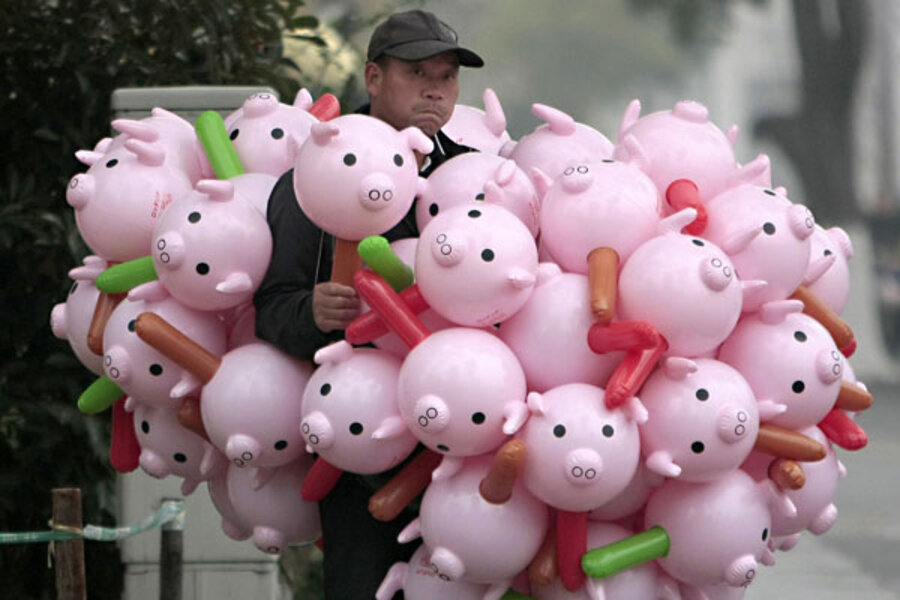No, Chinese inflation isn't a good sign
Loading...
Well, well, well, the Chinese economy is experiencing inflation. Overall consumer prices rose by 3.6 percent in March 2012, year-over-year, including an upsurge in food prices of 7.5 percent. Even the prices of venerable Chinese herbal medicines took an upward leap of 8.3 percent. According to a CNNMoney report, inflation is “the price of prosperity.” The report goes on to fatuously instruct us, “While inflation poses challenges for consumers, it is the byproduct of one of the most robust economies in the world.” A comparison of China’s 9.2 percent real GDP growth in 2011 with the paltry 1.2 percent growth rate for U.S. real GDP in the same year is thrown in as supposed proof of this statement.
But this is utter nonsense and one of the most deeply entrenched myths in both academic economics and media commentary. Basic economic theory demonstrates that “economic growth,” which is nothing but an increase in the supplies of various goods and services, is in and of itself deflationary. An increase in the supply of any good (or service), with the supply of money and all other factors fixed, results in a fall in its price and a growth in its sales, as the excess supply of the good drives the equilibrium price down and expands the quantity demanded. This irrefutable economic truth has been illustrated time and again since the late 1970s by sharp declines in the prices of items like personal computers, video game systems, HDTVs, digital cameras, and cell phones and of (uninsured) medical procedures like Lasik eye surgery and cosmetic surgery. Furthermore, this fall in prices has not caused stagnation in these industries but has instead coincided with their rapid expansion. I have explained this phenomenon of “growth deflation” in more depth elsewhere.
What then is the cause of the accelerating Chinese inflation? We need look no further than the money supply. The broad measure of the Chinese money supply, M2, which includes currency in circulation and all bank deposits, increased by 13.6 percent in 2011, although the People’s Bank of China had targeted a 16 percent increase. The PBOC has announced that it will set the money supply growth rate at 14 percent for 2012. This inflation targeting policy, so beloved by contemporary macroeconomists, augurs more rapid price inflation for Chinese consumers for years to come. More important, China’s long-standing super-loose monetary policy means that inflationary credit expansion has fueled a great part of the rapid growth of the Chinese economy, which is therefore unsustainable and doomed to collapse. Indeed, the pace of Chinese economic growth has already begun to falter in the last two quarters. In response, the PBOC has already cut reserve requirements twice in the last three months.
Having allowed the inflation tiger out of its cage, the Chinese government is now desperately hanging on to its tail. It must either cage the tiger forthwith and confront the damage it has already wreaked in the form of a collapse in its economic growth rate; or it must inevitably lose its grip and permit its burgeoning market economy to be devoured by the beast in an inflationary breakdown and reimposition of direct controls.







